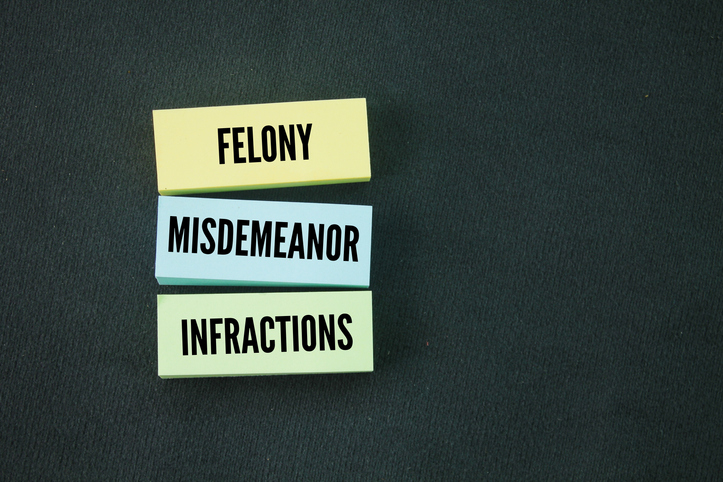Facing criminal charges in New York can be overwhelming, especially if you are unsure how the law classifies offenses. One of the most important distinctions in the criminal justice system is between misdemeanors and felonies. While both carry serious consequences, the level of punishment and the long-term effects on your life can differ greatly.
Understanding this distinction can help you make informed decisions and avoid mistakes that might worsen your situation. Let’s break down what separates a misdemeanor from a felony in New York and why it matters.
What Is a Misdemeanor?
In New York, a misdemeanor is considered a criminal offense that is less serious than a felony but more serious than a violation. Typically, misdemeanors are punishable by up to one year in jail, probation, fines, or community service.
Common examples include:
- Petty theft or shoplifting under a certain dollar amount
- Simple assault (without serious injury)
- Driving While Intoxicated (DWI) for first-time offenders
- Possession of small amounts of controlled substances
Although misdemeanors are often viewed as “less serious,” the reality is they can have lasting consequences. A conviction can show up on background checks, potentially affecting employment, housing, and even professional licensing. The New York State Unified Court System explains how misdemeanor cases move through criminal court.
What Is a Felony?
A felony is the most serious type of criminal charge in New York. Felonies are punishable by more than one year in state prison and often come with steeper fines, longer probation, and lifelong consequences.
Examples of felony charges include:
- Burglary
- Aggravated assault or assault with a deadly weapon
- Drug trafficking or possession of large quantities
- Homicide or manslaughter
- Grand larceny (theft involving high-value property)
Felonies are further broken down into classes (A through E), with Class A felonies being the most severe. For instance, Class A felonies such as first-degree murder can result in life imprisonment. You can review the full classification of felonies under New York Penal Law for a complete breakdown.
The Key Differences
While the line between misdemeanors and felonies is straightforward in theory, it’s not always so clear in practice. Several factors can push a misdemeanor into felony territory, including:
- The value of stolen property (shoplifting vs. grand larceny)
- The severity of injuries caused (simple assault vs. aggravated assault)
- Repeat offenses (such as multiple DWIs escalating into a felony charge)
In addition, prosecutors have discretion in how they charge certain crimes, which can significantly affect the outcome of a case.
Long-Term Consequences of a Conviction
The consequences of a conviction go far beyond jail or fines. A criminal record can:
- Limit your ability to secure employment (especially in licensed professions)
- Restrict housing opportunities, since many landlords conduct background checks
- Affect your ability to vote, particularly in felony cases until rights are restored
- Impact immigration status for non-citizens
According to the National Institute of Justice, nearly 60% of formerly incarcerated individuals remain unemployed a year after release, underscoring how damaging a conviction record can be for future opportunities.
Why Legal Representation Matters
Whether you’re facing a misdemeanor or felony charge, navigating the New York criminal justice system alone is a gamble you don’t need to take. Laws are complex, and the way charges are handled can make the difference between reduced penalties, dismissal, or long-term consequences.
A skilled defense lawyer can:
- Evaluate whether charges can be reduced or dismissed
- Challenge evidence that may not have been properly obtained
- Represent your rights during negotiations with prosecutors
- Guide you through court procedures to avoid costly missteps
Protecting Your Future Starts with the Right Defense
The difference between misdemeanors and felonies in New York isn’t just about jail time—it’s about how a conviction can shape your future. Even a misdemeanor can follow you for years, while a felony conviction can have life-changing consequences.
If you or someone you know is facing criminal charges on Long Island, don’t leave your future to chance. Contact an experienced Patchogue criminal defense attorney who can help protect your rights and fight for the best possible outcome.






